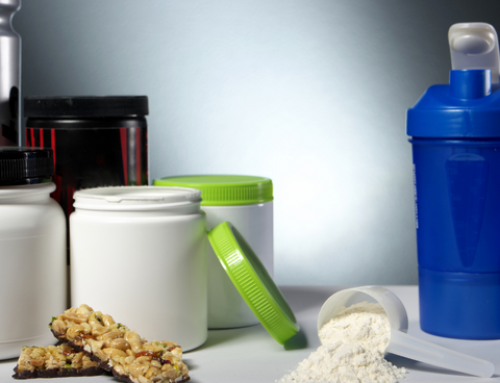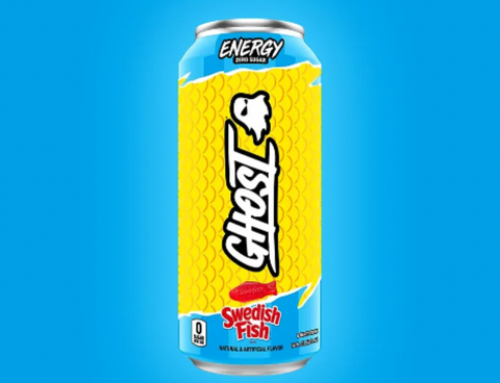4 Muscle-Building Supplements That Don’t Work
Supplement companies are like meteorologists. If what they say is true about half the time, nobody makes a fuss. But if you’re a regular consumer of muscle-building supplements on the wrong end of that 50 percent, you could waste hundreds of dollars on products that don’t live up to the hype.
Open a bodybuilding magazine or walk into a supplement store and you’ll be bombarded with bold claims that promise to turn you into Superman with the pop of a pill. But did you know that the U.S. Food and Drug Administration does not regulate nutritional supplements? In fact, as long as a supplement hasn’t been shown to be harmful and doesn’t claim to cure a disease, it’s fair game–even if the supplement is completely useless.
Luckily, researchers work hard to find the truth about supplements–and it’s not always pretty. Before taking any supplement, ask a doctor or dietician, and consult a trustworthy source like the Supplement Goals Reference Guide or Stack Guide from the experts at Examine.com.
Here are four popular muscle building supplements that, according to science, aren’t worth a penny. When you’re done looking at these, check out these supplements, which actually do help you.
Glutamine
The Claims
L-glutamine, an amino acid, increases protein synthesis and reduces protein breakdown to help build muscle.
The Truth
No studies confirm that glutamine helps build muscle in healthy individuals. Glutamine only seems to enhance muscle building in those with muscle-wasting disease or physical trauma, such as burns or puncture wounds.
Interesting Fact
In healthy individuals, the intestines seem to get “first dibs” on any extra glutamine. In other words, the intestines grab glutamine before the muscles can get it. This leads to increased protein synthesis in the gut, which can protect the intestines from foreign invaders and possibly reduce symptoms of stomach discomfort.
Try This Instead
Whey protein, when used as a supplement, has been proven to increase muscle protein synthesis and can help add lean body mass. To build muscle after a tough workout, mix a shake with 20 to 30 grams of protein—usually one scoop of protein powder—and an extra carbohydrate source like a banana or fruit juice.
Creatine Ethyl Ester
The Claims
Creatine, a popular and highly effective muscle-building supplement, improves performance by enhancing short-term power output and increasing intracellular fluid volume. Creatine ethyl ester supposedly enhances performance without unwanted water retention.
The Truth
Although creatine ethyl ester causes virtually no gain in water weight, that’s simply because very little creatine makes it into the muscle cells. All the creatine gets degraded into creatinine—a waste product of creatine breakdown—in the intestines, making the supplement totally useless.
Interesting Fact
Gaining water weight actually increases performance. Extra water makes the muscle cells swell, which activates protein synthesis and can lead to more muscle growth.
Try This Instead
Simply take creatine monohydrate, which is safe and effective. Supplementing with 5 grams per day can increase power output and lean muscle. And those rumors about creatine causing dehydration? Not true. Drink enough water during exercise, and creatine will have nothing but positive effects.
Glucosamine
The Claims
Famous for its supposed joint-healing properties, glucosamine is touted to relieve joint pain. And though glucosamine doesn’t actually build muscle, many people also take it to recover from hard workouts.
The Truth
Science shows that glucosamine definitely helps relieve symptoms of osteoarthritis, but only a little. It’s about the same as taking Tylenol.
Interesting Fact
Glucosamine is derived from shellfish, so don’t take it if you’re allergic.
Try this Instead
Fish oil reduces inflammation, which may help with joint pain. Plus, it’s heart-healthy and can reduce cortisol, a stress hormone that can interfere with building muscle.
Testosterone Boosters
The Claims
Testosterone boosters promise to “naturally” increase testosterone levels, leading to bigger muscles, less fat and increased athletic performance.
The Truth
Unless your current testosterone levels are below average, boosters won’t do much for you. And whether they work or not, many testosterone boosters are on the NCAA Banned Substances list and could get college athletes in serious trouble.
Many supplements, from herbs to Vitamin D to the infamous Velvet Antler, attempt to raise testosterone levels in the blood, but most studies show a positive effect only in people who had low testosterone levels to start. For example, DHEA, a supplement known for its “anti-aging” effects, boosts testosterone in older women but doesn’t boost levels above normal in young, healthy athletes.
Try This Instead
Zinc can boost testosterone if you’re deficient in this essential mineral. Luckily, most athletes can benefit because zinc is lost in sweat and with excessive exercise. Eat plenty of meat, eggs and legumes or take 5-10 mg daily.
References
Andersen, Lars, et al. “The Effect of Resistance Training Combined with Timed Ingestion of Protein on Muscle Fiber Size and Muscle Strength.” Metabolism 54.2 (2005): 151-56.
Angelis, Luciana De, et al. “Regulation of Vertebrate Myotome Development by the P38 MAP Kinase–MEF2 Signaling Pathway.” Developmental Biology 283.1 (2005): 171-79.
Brown, G, et al. “Effect of Oral DHEA on Serum Testosterone and Adaptations to Resistance Training in Young Men.” Journal of Applied Physiology 87.6 (1999): 2274-283.
Candow, Darren G., et al. “Effect of Different Frequencies of Creatine Supplementation on Muscle Size and Strength in Young Adults.” Journal of Strength and Conditioning Research 25.7 (2011): 1831-838.
Chilibeck, Philip D., et al. “Effect of Creatine Ingestion after Exercise on Muscle Thickness in Males and Females.” Medicine & Science in Sports & Exercise 36.10 (2004): 1781-788.
Coëffier, M, et al. “Enteral Glutamine Stimulates Protein Synthesis and Decreases Ubiquitin MRNA Level in Human Gut Mucosa.” American Journal of Physiology: Gastrointestinal and Liver Physiology 285.2 (2003): G266-273.
Frank, Kurtis, and Sol Orwell. “Glutamine – Scientific Review on Usage, Dosage, Side Effects.” Examine.com. 19 Sept. 2013. Web.
Herrero-Beaumont, Gabriel, et al. “Glucosamine Sulfate in the Treatment of Knee Osteoarthritis Symptoms: A Randomized, Double-blind, Placebo-controlled Study Using Acetaminophen as a Side Comparator.” Arthritis & Rheumatism 56.2 (2007): 555-67.
Kenny, Anne M., et al. “Dehydroepiandrosterone Combined with Exercise Improves Muscle Strength and Physical Function in Frail Older Women.” Journal of the American Geriatrics Society 58.9 (2010): 1707-714.
Kerksick, Chad M., et al. “The Effects Of Protein And Amino Acid Supplementation On Performance And Training Adaptations During Ten Weeks Of Resistance Training.” Journal of Strength and Conditioning Research 20.3 (2006): 643-53.
Kiecolt-Glaser, Janice K., et al. “Omega-3 Supplementation Lowers Inflammation and Anxiety in Medical Students: A Randomized Controlled Trial.” Brain, Behavior, and Immunity 25.8 (2011): 1725-734.
Kilic, M, et al. “The Effect of Exhaustion Exercise on Thyroid Hormones and Testosterone Levels of Elite Athletes Receiving Oral Zinc.” Neuro Endocrinology Letters 27.1-2 (2006): 247-52.
Lopez, Rebecca M., et al. “Does Creatine Supplementation Hinder Exercise Heat Tolerance or Hydration Status? A Systematic Review With Meta-Analyses.” Journal of Athletic Training 44.2 (2009): 215-23.
Michaeli, Burkhard, et al. “Effects of Fish Oil on the Neuro-endocrine Responses to an Endotoxin Challenge in Healthy Volunteers.” Clinical Nutrition 26.1 (2007): 70-77.
Orwell, Sol, and Kurtis Frank. “Zinc – Scientific Review on Usage, Dosage, Side Effects.” Examine.com. 9 May 2014. Web.
Reitelseder, S., et al. “Whey and Casein Labeled with L-[1-13C]leucine and Muscle Protein Synthesis: Effect of Resistance Exercise and Protein Ingestion.” American Journal of Physiology: Endocrinology and Metabolism 300.1 (2010): E231-242.
Spillane, Mike, et al. “The Effects of Creatine Ethyl Ester Supplementation Combined with Heavy Resistance Training on Body Composition, Muscle Performance, and Serum and Muscle Creatine Levels.” Journal of the International Society of Sports Nutrition 6.1 (2009): 6.
Tipton, KD, et al. “Ingestion of Casein and Whey Proteins Result in Muscle Anabolism after Resistance Exercise.” Medicine and Science in Sports and Exercise 36.12 (2004): 2073-081.
[cf]skyword_tracking_tag[/cf]RECOMMENDED FOR YOU
MOST POPULAR
4 Muscle-Building Supplements That Don’t Work
Supplement companies are like meteorologists. If what they say is true about half the time, nobody makes a fuss. But if you’re a regular consumer of muscle-building supplements on the wrong end of that 50 percent, you could waste hundreds of dollars on products that don’t live up to the hype.
Open a bodybuilding magazine or walk into a supplement store and you’ll be bombarded with bold claims that promise to turn you into Superman with the pop of a pill. But did you know that the U.S. Food and Drug Administration does not regulate nutritional supplements? In fact, as long as a supplement hasn’t been shown to be harmful and doesn’t claim to cure a disease, it’s fair game–even if the supplement is completely useless.
Luckily, researchers work hard to find the truth about supplements–and it’s not always pretty. Before taking any supplement, ask a doctor or dietician, and consult a trustworthy source like the Supplement Goals Reference Guide or Stack Guide from the experts at Examine.com.
Here are four popular muscle building supplements that, according to science, aren’t worth a penny. When you’re done looking at these, check out these supplements, which actually do help you.
Glutamine
The Claims
L-glutamine, an amino acid, increases protein synthesis and reduces protein breakdown to help build muscle.
The Truth
No studies confirm that glutamine helps build muscle in healthy individuals. Glutamine only seems to enhance muscle building in those with muscle-wasting disease or physical trauma, such as burns or puncture wounds.
Interesting Fact
In healthy individuals, the intestines seem to get “first dibs” on any extra glutamine. In other words, the intestines grab glutamine before the muscles can get it. This leads to increased protein synthesis in the gut, which can protect the intestines from foreign invaders and possibly reduce symptoms of stomach discomfort.
Try This Instead
Whey protein, when used as a supplement, has been proven to increase muscle protein synthesis and can help add lean body mass. To build muscle after a tough workout, mix a shake with 20 to 30 grams of protein—usually one scoop of protein powder—and an extra carbohydrate source like a banana or fruit juice.
Creatine Ethyl Ester
The Claims
Creatine, a popular and highly effective muscle-building supplement, improves performance by enhancing short-term power output and increasing intracellular fluid volume. Creatine ethyl ester supposedly enhances performance without unwanted water retention.
The Truth
Although creatine ethyl ester causes virtually no gain in water weight, that’s simply because very little creatine makes it into the muscle cells. All the creatine gets degraded into creatinine—a waste product of creatine breakdown—in the intestines, making the supplement totally useless.
Interesting Fact
Gaining water weight actually increases performance. Extra water makes the muscle cells swell, which activates protein synthesis and can lead to more muscle growth.
Try This Instead
Simply take creatine monohydrate, which is safe and effective. Supplementing with 5 grams per day can increase power output and lean muscle. And those rumors about creatine causing dehydration? Not true. Drink enough water during exercise, and creatine will have nothing but positive effects.
Glucosamine
The Claims
Famous for its supposed joint-healing properties, glucosamine is touted to relieve joint pain. And though glucosamine doesn’t actually build muscle, many people also take it to recover from hard workouts.
The Truth
Science shows that glucosamine definitely helps relieve symptoms of osteoarthritis, but only a little. It’s about the same as taking Tylenol.
Interesting Fact
Glucosamine is derived from shellfish, so don’t take it if you’re allergic.
Try this Instead
Fish oil reduces inflammation, which may help with joint pain. Plus, it’s heart-healthy and can reduce cortisol, a stress hormone that can interfere with building muscle.
Testosterone Boosters
The Claims
Testosterone boosters promise to “naturally” increase testosterone levels, leading to bigger muscles, less fat and increased athletic performance.
The Truth
Unless your current testosterone levels are below average, boosters won’t do much for you. And whether they work or not, many testosterone boosters are on the NCAA Banned Substances list and could get college athletes in serious trouble.
Many supplements, from herbs to Vitamin D to the infamous Velvet Antler, attempt to raise testosterone levels in the blood, but most studies show a positive effect only in people who had low testosterone levels to start. For example, DHEA, a supplement known for its “anti-aging” effects, boosts testosterone in older women but doesn’t boost levels above normal in young, healthy athletes.
Try This Instead
Zinc can boost testosterone if you’re deficient in this essential mineral. Luckily, most athletes can benefit because zinc is lost in sweat and with excessive exercise. Eat plenty of meat, eggs and legumes or take 5-10 mg daily.
References
Andersen, Lars, et al. “The Effect of Resistance Training Combined with Timed Ingestion of Protein on Muscle Fiber Size and Muscle Strength.” Metabolism 54.2 (2005): 151-56.
Angelis, Luciana De, et al. “Regulation of Vertebrate Myotome Development by the P38 MAP Kinase–MEF2 Signaling Pathway.” Developmental Biology 283.1 (2005): 171-79.
Brown, G, et al. “Effect of Oral DHEA on Serum Testosterone and Adaptations to Resistance Training in Young Men.” Journal of Applied Physiology 87.6 (1999): 2274-283.
Candow, Darren G., et al. “Effect of Different Frequencies of Creatine Supplementation on Muscle Size and Strength in Young Adults.” Journal of Strength and Conditioning Research 25.7 (2011): 1831-838.
Chilibeck, Philip D., et al. “Effect of Creatine Ingestion after Exercise on Muscle Thickness in Males and Females.” Medicine & Science in Sports & Exercise 36.10 (2004): 1781-788.
Coëffier, M, et al. “Enteral Glutamine Stimulates Protein Synthesis and Decreases Ubiquitin MRNA Level in Human Gut Mucosa.” American Journal of Physiology: Gastrointestinal and Liver Physiology 285.2 (2003): G266-273.
Frank, Kurtis, and Sol Orwell. “Glutamine – Scientific Review on Usage, Dosage, Side Effects.” Examine.com. 19 Sept. 2013. Web.
Herrero-Beaumont, Gabriel, et al. “Glucosamine Sulfate in the Treatment of Knee Osteoarthritis Symptoms: A Randomized, Double-blind, Placebo-controlled Study Using Acetaminophen as a Side Comparator.” Arthritis & Rheumatism 56.2 (2007): 555-67.
Kenny, Anne M., et al. “Dehydroepiandrosterone Combined with Exercise Improves Muscle Strength and Physical Function in Frail Older Women.” Journal of the American Geriatrics Society 58.9 (2010): 1707-714.
Kerksick, Chad M., et al. “The Effects Of Protein And Amino Acid Supplementation On Performance And Training Adaptations During Ten Weeks Of Resistance Training.” Journal of Strength and Conditioning Research 20.3 (2006): 643-53.
Kiecolt-Glaser, Janice K., et al. “Omega-3 Supplementation Lowers Inflammation and Anxiety in Medical Students: A Randomized Controlled Trial.” Brain, Behavior, and Immunity 25.8 (2011): 1725-734.
Kilic, M, et al. “The Effect of Exhaustion Exercise on Thyroid Hormones and Testosterone Levels of Elite Athletes Receiving Oral Zinc.” Neuro Endocrinology Letters 27.1-2 (2006): 247-52.
Lopez, Rebecca M., et al. “Does Creatine Supplementation Hinder Exercise Heat Tolerance or Hydration Status? A Systematic Review With Meta-Analyses.” Journal of Athletic Training 44.2 (2009): 215-23.
Michaeli, Burkhard, et al. “Effects of Fish Oil on the Neuro-endocrine Responses to an Endotoxin Challenge in Healthy Volunteers.” Clinical Nutrition 26.1 (2007): 70-77.
Orwell, Sol, and Kurtis Frank. “Zinc – Scientific Review on Usage, Dosage, Side Effects.” Examine.com. 9 May 2014. Web.
Reitelseder, S., et al. “Whey and Casein Labeled with L-[1-13C]leucine and Muscle Protein Synthesis: Effect of Resistance Exercise and Protein Ingestion.” American Journal of Physiology: Endocrinology and Metabolism 300.1 (2010): E231-242.
Spillane, Mike, et al. “The Effects of Creatine Ethyl Ester Supplementation Combined with Heavy Resistance Training on Body Composition, Muscle Performance, and Serum and Muscle Creatine Levels.” Journal of the International Society of Sports Nutrition 6.1 (2009): 6.
Tipton, KD, et al. “Ingestion of Casein and Whey Proteins Result in Muscle Anabolism after Resistance Exercise.” Medicine and Science in Sports and Exercise 36.12 (2004): 2073-081.
[cf]skyword_tracking_tag[/cf]










